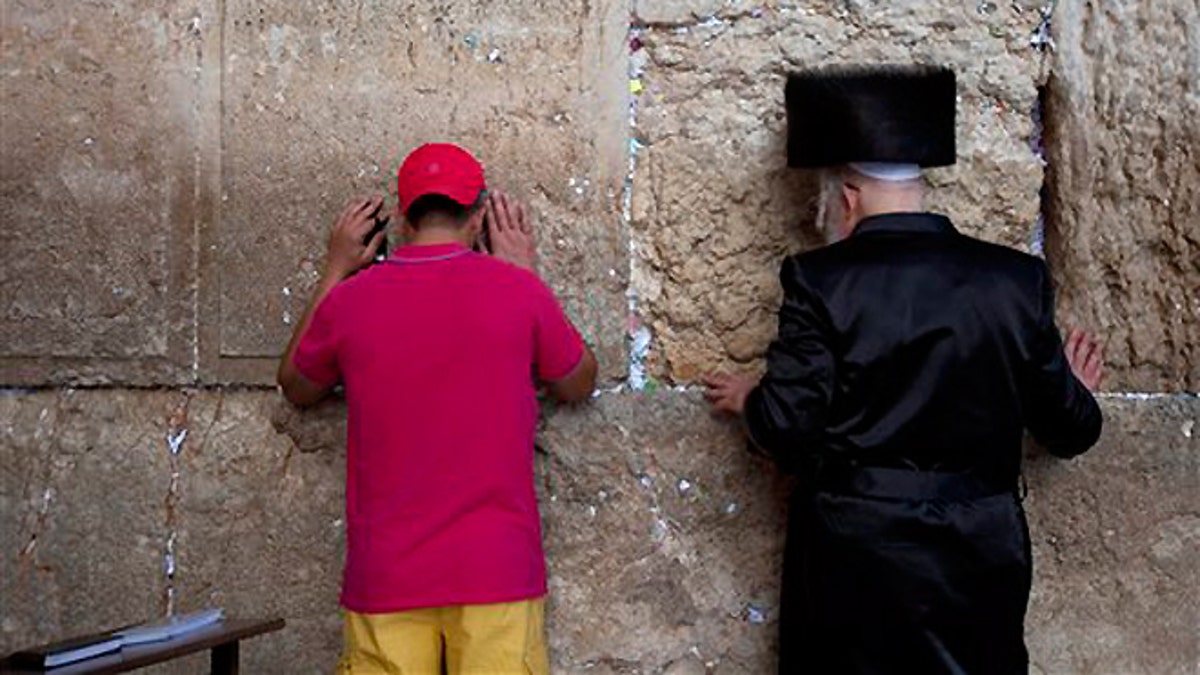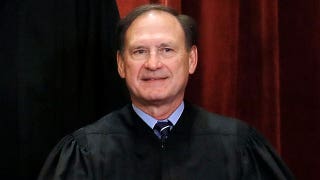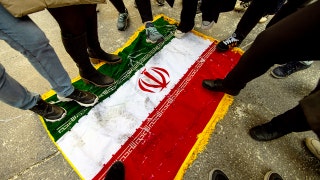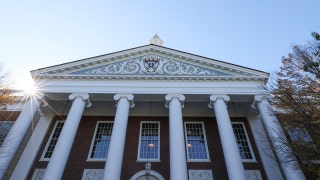
Sept. 4, 2013: An ultra-Orthodox Jewish man prays alongside a tourist ahead of the Jewish New Year at the Western Wall, the holiest site where Jews can pray in Jerusalem's old city. (AP Photo/Sebastian Scheiner)
In 2008, the Simon Wiesenthal Center received an unusual request for help—from the government of Iraq. Their U.N. Mission wanted our help to mount an exhibition on the 30th anniversary of Saddam Hussein’s gassing of his fellow (Kurdish) Iraqi citizens.
A few weeks later, I found myself, together with my colleague Liebe Geft, at a Muslim cemetery in the town of Halabja, amidst the mass graves of Saddam’s victims.
What prayer does an Orthodox rabbi say for the victims of poison gas, a crime that breached a red line once thought unthinkable after the Nazi Holocaust?
I could think of no Psalm from King David’s lips that could penetrate the utter desolation of the place, for a crime that never should have been, for innocents whose lives should never have been snuffed out.
[pullquote]
All I could think about was the reaction of Simon Wiesenthal back in 1988 immediately after the poison gas attack in Iraq. The great Nazi hunter, who lost 89 members of his family in the Holocaust, said these prophetic words to me:
“By doing nothing, the world is making a terrible mistake. Tyrants will interpret our silence and inaction in ways that will come back to haunt us in the future.”
We can only imagine how our world would be different today, had a ‘coalition of the willing’ taken on Saddam, then and there.
At the minimum, we could have avoided two Gulf Wars, the American invasion of Iraq and the loss and pain of so many U.S. soldiers and civilians across the region.
And, had Saddam been held accountable in 1988, today, another heartless tyrant, Bashar Assad, would not have the guts to deploy sarin gas on his fellow Syrian men, women and children.
Without question, President Obama was right to draw a red line when it first became clear a year ago that Assad was deploying North Korean-supplied poison gas in the midst of Syria’s unending and deadly civil war.
Now he is asking Congress to back military action against Assad, a call the Simon Wiesenthal Center endorses.
If America fails to act, we render meaningless all of the 'Never Again' pledges made by political leaders. We will empower Assad to strike again and will certainly increase the odds that his allies in Tehran might crossthe other 'red line'that would soon threatens to menace Israel, Saudi Arabia, and the Gulf States with a nuclear-tipped Armageddon.
Which brings me back to Halabja.
The Simon Wiesenthal Center did in fact help create an exhibit with Iraq at U.N. Headquarters in New York that finally enabled Kurds—thirty years later-- to put a human face on their martyrs of Saddam Hussein’s crimes against humanity.
Standing amidst their mass graves the words for a prayer for Halabja’s victims finally came to me. They come from the opening words of our High Holy Days sacred Amidah devotion.
On the anniversary of the creation of the world, Jews do not begin with a plea for our families’ good health and fortune, nor for Israel’s wellbeing. These are the words we say:
“O Hashem our God, instill your awe upon all Your works, and Your fear and dread upon all you have created…”
Today there is no shortage of terrorists who scream “God is Great” as they butcher Muslims at prayer in mosques, destroy Churches, murder Christian students and Jewish school children.
Such people do not sanctify God; they and their cynical teachers diminish and desecrate God’s Name and the very reason He put us here in the first place.
This Rosh Hashanah I will repeat the prayer I chanted in Halabja with renewed fervor.
We desperately need a humbled humanity reinvested with a sense of awe of the majesty of this world and with our arrogance tamped down by the knowledge that ultimately each of us will be held accountable by a higher authority that will ask just one question: “Were you your brother’s keeper?”








































